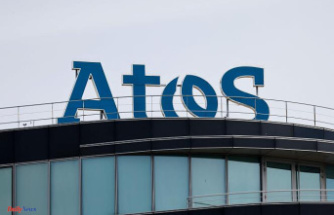Unusually high price jumps after Chinese IPOs call the Nasdaq on the plan. The premieres of four newcomers are on hold pending questions about the identity of the investors, insiders reveal. It may be about protecting inexperienced small investors.
After noticeable jumps in stock market newcomers from China, the US stock exchange Nasdaq has stopped planned projects by four other companies from the People's Republic. Securities expert Douglas Ellenoff said he was informed by Nasdaq that certain IPOs would not be allowed until it was clear what was behind the actions of some Chinese issuers earlier in the year.
At that time, the prices of stock market newcomers had increased by up to 2000 percent on their debut and then lubricated again. It was about rather small IPOs (initial public offerings) with an issue value of 50 million dollars or less. According to financial markets platform Dealogic, Chinese IPOs in the US saw an average price increase of more than 400 percent on their first day of trading this year - compared to 68 percent for all other IPOs. In addition, the number of smaller Chinese IPOs in the US has increased significantly: in the past five years there have been 57 of them, after 17 in the five years before.
A banking insider told Reuters that Nasdaq began asking questions of advisers to small Chinese IPO candidates in September. It was about the identity of the shareholders, their place of residence, their investment volume and the question of whether they had been offered interest-free loans for participation. It is unclear what measures Nasdaq will ultimately take. It is also unclear whether all or some of the IPOs that have now been stopped will be allowed to continue. A Nasdaq spokesman declined to comment.
Several insiders said a few overseas investors who hid their identities were behind the jumps in IPOs earlier in the year. They had bought up most of the shares and thus given the impression that the papers were in demand. The US Securities and Exchange Commission and other US authorities have not yet reported any successful prosecution of such a "pump-and-dump" case because Chinese companies and their foreign bankers have so far carried them out in secret.
Nasdaq's intervention shows that there are still loopholes in the standards that the US stock market has introduced in recent years to ward off manipulation of small IPOs. According to this, a company that wants to go public must have at least 300 investors, each holding at least 100 shares that are collectively worth at least $2,500. According to observers, small Chinese companies are aiming for the Nasdaq and not the New York Stock Exchange because the Nasdaq is traditionally considered a trading place for innovative tech start-ups - and the companies want to decorate themselves with it.
According to Jay Ritter, stock market expert and professor at the University of Florida, almost all of these microcap IPOs are "story" stocks, trying to convince unsuspecting small investors that the new company is "a high-flyer" and will be the next Facebook could". The insiders did not want to say which four Chinese companies Nasdaq is currently preventing from going public. According to Dan McClory, head of equity markets at trading house Boustead Securities, the development shows that IPO rules in the USA are more relaxed than in China. It would therefore be "practically impossible for the companies in question to go public in China".












